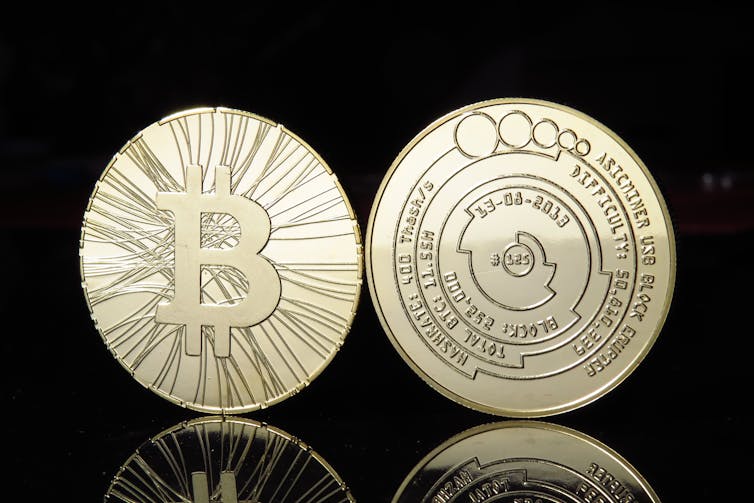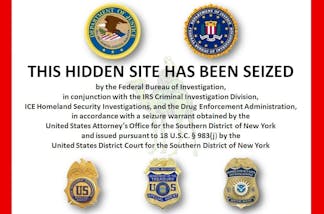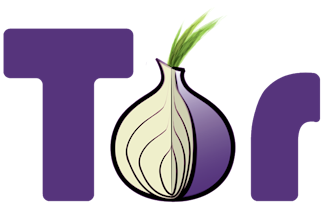Uncategorized
Explainer: what is the dark web?
Academic rigour, journalistic flair
- COVID-19
- Arts + Culture
- Business + Economy
- Education
- Environment + Energy
- Health + Medicine
- Politics + Society
- Science + Technology
- COP26
There’s a dark side to the internet. powtac/Flickr, CC BY-NC-ND
Explainer: what is the dark web?
August 13, 2015 6.28am BST Updated July 4, 2017 6.11am BST
Author
- David Glance Director of UWA Centre for Software Practice, The University of Western Australia
Disclosure statement
David Glance does not work for, consult, own shares in or receive funding from any company or organisation that would benefit from this article, and has disclosed no relevant affiliations beyond their academic appointment.
Partners
Buy 2-FMA online
University of Western Australia provides funding as a founding partner of The Conversation AU.
The Conversation UK receives funding from these organisations
 We believe in the free flow of information
We believe in the free flow of information
Republish our articles for free, online or in print, under Creative Commons licence.
- Twitter66
- Facebook406
- Buy 2-FMA online
The “dark web” is a part of the world wide web that requires special software to access. Once inside, web sites and other services can be accessed through a browser in much the same way as the normal web.
However, some sites are effectively “hidden”, in that they have not been indexed by a search engine and can only be accessed if you know the address of the site. Special markets also operate within the dark web called “darknet markets”, which mainly sell illegal products like drugs and firearms, paid for in the cryptocurrency Bitcoin.
The dark web has been host to crowdfunded “assassination markets”, where users can pay towards having someone assassinated. A site was reportedly created to crowdfund the assassination of US President Donald Trump and Vice-President Mike Pence, but most of these platforms are likely to be scams.
More recently, a journalist was able to purchase his Medicare details on a Tor website. The dark net vendor claimed they could sell the Medicare patient details of any Australian.
We only trust experts. We only publish experts. Support us
Because of the the dark web’s almost total anonymity, it has been the place of choice for groups wanting to stay hidden online from governments and law enforcement agencies.
Whistle blowers have used the dark web to communicate with journalists, but more frequently, it has been used by paedophile groups, terrorists and criminals to keep their dealings secret.
Buy 2-FMA online
Going dark
There are a number of ways to access the dark web, including the use of Tor, Freenet and I2P. Of these, the most popular is Tor (originally called The Onion Router), partly because it is one of the easiest software packages to use. Tor downloads as a bundle of software that includes a version of Firefox configured specifically to use Tor.
Tor provides secrecy and anonymity by passing messages through a network of connected Tor relays, which are specially configured computers. As the message hops from one node to another, it is encrypted in a way that each relay only knows about the machine that sent the message and the machine it is being sent to.
Rather than conventional web addresses, Tor uses “onion” addresses, which further obscure the content. There are even special versions of search engines like Bing and Duck Duck Go that will return onion addresses for Tor services.
It is a mistake to think that Tor is entirely anonymous. If a web site is accessed, it can still potentially find out information about whoever is accessing the site because of information that is shared, such as usernames and email addresses. Those wanting to stay completely anonymous have to use special anonymity services to hide their identity in these cases.

Services on the dark web would not have become as popular without a means of paying for them. This is something that Bitcoin has made possible. Drug sales on the dark net were estimated to be between US$150 and $180 million a year in 2015. Most, if not all, were paid for in Bitcoin.
Bitcoin is made even more difficult to track on the dark web through the use of “mixing services” like Bitcoin Laundry, which enables Bitcoin transactions to be effectively hidden completely.
Even when law enforcement has succeeded in shutting down drug markets, the effect on overall illegal drug sales has been minimal
How ‘dark’ is the dark web?
The developers of Tor and organisations like the Electronic Frontier Foundation (EFF) argue that the principal users of Tor are activists and people simply concerned with maintaining their privacy. Certainly, Tor has been used in the past for journalists to talk to whistleblowers and activists, or in making submissions through sites like SecureDrop to a variety of news organisations.
However, even a cursory glance at the Hidden Wiki – the main index of dark websites – reveals that the majority of sites listed are concerned with illegal activities. Some of these sites are scams, and so it is not clear how easy it is to buy guns, fake passports and hire hackers from the services listed. But there are likely sites on the dark web where these things are entirely possible.
Former executive director of the Tor project, Andrew Leman has conceded that the use of Tor for illicit purposes has overwhelmed any legitimate use.
Although the dark web makes law enforcement agencies’ jobs much more difficult, they have had a great deal of success in bringing down sites and arresting their users and the people behind them. The most famous of these was the arrest of Ross Ulbricht, the person behind the most well known of the drug markets, Silk Road.
In another infamous case, the administrator of the dark web-based Playpen child pornography site was sentenced to more than 30 years in jail. Steven Chase was caught by the FBI after inadvertently revealing the real internet address of the site. A further 870 people were reportedly arrested in relation to the site.
This story was updated to reflect more recent dark web cases
Buy 2-FMA online
We need science …
Science is the best tool we have to understand the world. But today many are campaigning against science and vilifying scientists. As a result tales devoid of facts are spreading. This is why at The Conversation, we get scientists themselves to tell people about their work. Half a billion have read Conversation articles last year alone. But to keep going, we need your support.
Miriam Frankel
Science Editor
You might also like

The fall of Silk Road isn’t the end for anonymous marketplaces, Tor or bitcoin

Bitcoin: a pirate’s booty or the new global currency?

Tor: the last bastion of online anonymity, but is it still secure after Silk Road?

Does anonymity mean criminality? Bitcoin feels Liberty Reserve pressure
Comments are open for 72 hours but may be closed early if there is a high risk of comments breaching our standards.
Events
- Global Challenges Podcast Series 2 — Swansea, Swansea [Abertawe GB-ATA]
- Introduction to Spatial Data and Using R as a GIS — Southampton, Southampton
- Picture Gallery viewing time — Egham, Surrey
- LGBTQ+ parenting journeys and family law: a case study approach — Egham, Surrey
- Friday lunchtime concert — Egham, Surrey
- Editorial Policies
- Community standards
- Republishing guidelines
- Friends of The Conversation
- Analytics
- Events
- Our feeds
- Donate
Privacy policyTerms and conditionsCorrections and complaints
Copyright © 2010–2021, The Conversation Trust (UK) Limited
Buy research chemicals on darkweb,Buy Psychedelics Online USA,Buy Magic Mushrooms Online,Buy research chemicals on darkweb online with express delivery using DHL and Fedex,Buy Research chemicals online USA,Buy LSD drug online,Buy Heroin Onlin,Buy Fentanyl online USA,Buy Crystal Meth Onlin,Cocaine for sale online usa,Powder

